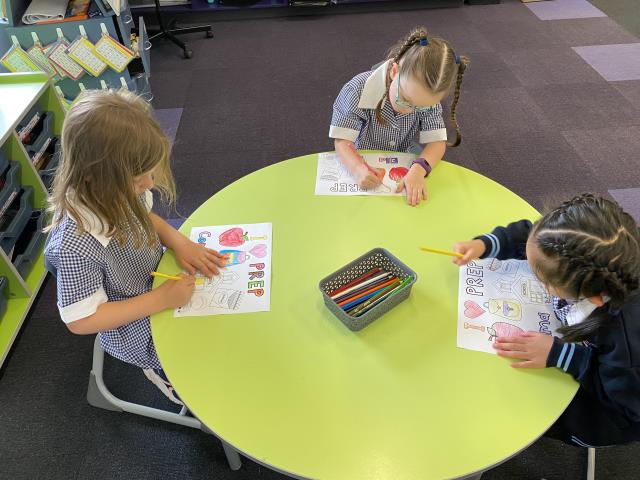By Melissa Grant
Starting school is a major milestone in a child’s life and a major transition.
So how do you best prepare your child for Prep?
Deakin University parenting expert Dr Elizabeth Westrupp says there are steps parents can take now to help with the transition.
Dr Westrupp, a clinical psychologist and senior lecturer in Deakin’s Centre for Social and Early Emotional Development (SEED), says that while most kids are very adaptable, it’s important parents exude a “calm confidence” and happily answer any question their child may have about school.
Here, Dr Westrupp shares her top tips for helping the transition go more smoothly:
– Talk about school: Kids are usually pretty excited about going to school, but it is helpful for parents to talk about what happens at school. Dr Westrupp says parents should explain what going to school is all about.
“Talk about a typical day in school, it doesn’t have to be perfect or exact,” she said.
“Walk them through the routine – the night time routine including getting ready their school uniform, lunch box, drink bottle.
“As a parent you want to set your child’s expectations so there aren’t many surprises on the day.”
She says it’s also important to talk, in an age-appropriate way, about any questions or worries your child may have about starting school.
“Some children tend to worry about things. Give your child a base to chat about anything that’s on their mind.
“The way parents respond is how it shapes the child. If they are calm and confident that will reassure children. It’s really important that kids start with some enthusiasm so making it sound exciting, a positive, exciting thing.”
Mark the milestone with a celebration and/or take some photos of your child in their uniform before you take them to school for the first time.
– Get your child involved: As your child’s first day of school approaches, get your child involved and make it fun. Dr Westrupp says it’s a good idea to get your child involved in preparing everything for their first day. This includes their school uniform/outfit, deciding what will be in their first lunchbox and what is going in their school bag.
“When kids are involved in planning it makes it more fun and makes them more confident,” she said.
Make adjustments to sleep: Over the summer holidays, many families relax bedtimes and routines. Dr Westrupp says it’s helpful if you give your child a week or two to adapt to the school routine before they actually start. This means getting up early or setting a time to wake up.
“I suggest families set an alarm clock at the time their kids need to wake at school time, at least a week beforehand,” she said.
Although kids may be grumpy to start with, it should only last a few days.
– Practice concentration: Learning in a classroom requires long periods of concentration.
“It might be good in those couple of weeks before school getting them to do some reading, sitting down and doing shared book reading, puzzles, artworks and writing letters, ” Dr Westrupp said.
You should also explain to your child that in school they will have to listen to what their teacher wants them to do and sit for periods of time.
Nutrition: You need to make sure you are providing your child with the right fuel as nutrition is important for brain development. Dr Westrupp says to keep nutrition simple with healthy foods like sandwiches and fruits.
– Prepare for a tired child: When a child starts school, their little brains do so much as it’s a big transition.
“The new rules, the way classrooms work is quite a jump from kindergarten which is play-based,” Dr Westrupp said.
“Most kids will be a bit more grumpy at home because home is the safe space, so they can let their feelings out at home.”
This means you will have to be a little more patient and gentle with your child, and make sure they go to bed on time.







